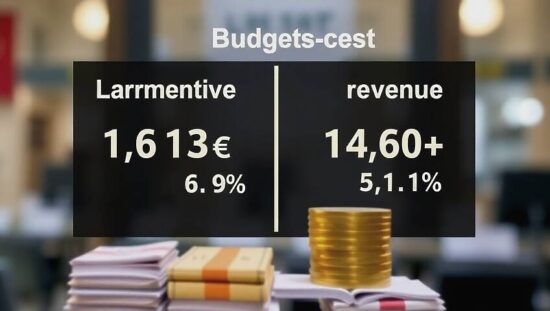Public Budget Expenditure Increases by 5.9% in First Three Quarters of 2024
The German Federal Statistical Office (Destatis) announced on Friday that the public budget expenditure in the first three quarters of 2024 has increased by around 5.9% to 1.513.3 billion euros, compared to the same period last year. At the same time, revenues rose by around 5.1% to 1.405.8 billion euros, resulting in a budget deficit of around 108 billion euros, which is 16.1 billion euros higher than in the previous year.
According to Destatis, all levels of the public budget, including the federal government, states, municipalities, and social insurance, reported a deficit. Although the federal government has been the largest contributor to the overall deficit since 2020, the financial deficits of the municipalities, states, and social insurance have increased significantly.
Tax revenues and similar levies rose by around 4.3% to 1.200.4 billion euros, with significant growth in the contributions of the social insurance and the withholding tax, which increased by 146.5% to 6.1 billion euros due to the rising interest rate.
The federal government’s revenues, for example, were boosted by the sale of Commerzbank and Deutsche Post AG shares, with an increase of 4.7 billion euros. At the same time, the federal government’s expenses for the acquisition of shares rose by 3.5 billion euros, primarily due to the increase in the equity of Deutsche Bahn AG.
The introduction of the Germany ticket and the associated greater dependence on public subsidies led to the inclusion of around 440 public transportation companies as extrabudgetary units in the public budget from the second quarter of 2023. The inclusion of these units led to a one-off effect: the disproportionately large increase in personnel and operating expenses, accompanied by higher “other ongoing revenues” from fare income. This effect is particularly noticeable at the federal level, which includes several major transportation companies due to their shareholdings (e.g., Berlin and Hamburg’s S-Bahn, DB Regio, and DB InfraGO).
The federal government’s expenses in the first three quarters of 2024 were around 442.9 billion euros, a 1.7% decrease from the previous year. With a 2.7% increase to 384.6 billion euros, the federal government’s revenues resulted in a budget deficit of 58.2 billion euros, a 17.7 billion euro decrease from the previous year.
The states reported a deficit of 7.3 billion euros, with revenues of 397.6 billion euros (3.9% increase) and expenses of 404.9 billion euros (6.7% increase).
The municipalities and community associations experienced a significant increase in expenses, up 10.6% to 286.6 billion euros, while revenues rose by 5.2% to 260.6 billion euros, resulting in a budget deficit of 25.9 billion euros, a 14.5 billion euro increase from the previous year.
The social insurance reported a budget deficit of 16.1 billion euros, an 8.9 billion euro increase from the previous year, with around two-thirds of this deficit, or 11 billion euros, attributed to the health insurance, 4.4 billion euros to the general pension insurance, and 1.6 billion euros to the long-term care insurance. The social insurance’s expenses rose by 6.8% to 649.1 billion euros, slightly more than the 5.4% increase in revenues to 633 billion euros, according to the agency.





